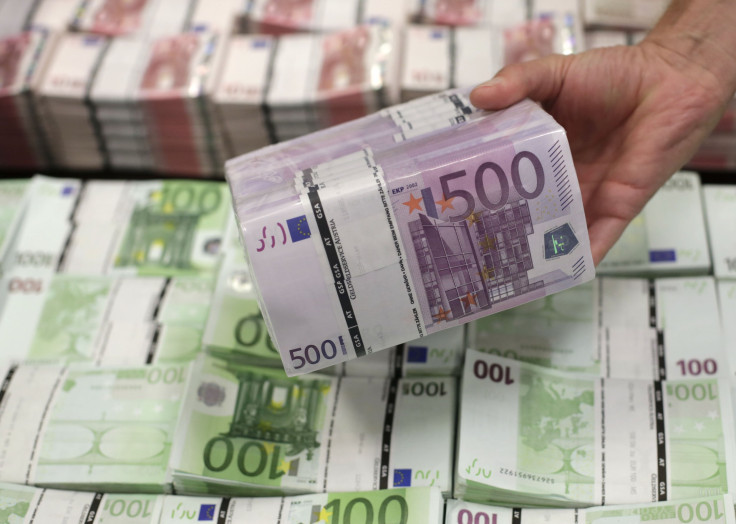Euro Zone Inflation Falls Significantly Lower Than ECB’s Target; Mario Draghi Says Key Interest Rates Will Remain Low

Annual inflation in the euro zone slowed in August, in line with expectations, to hit 1.3 percent, down from 1.6 percent in July and significantly lower than the 2.6 percent recorded in August 2012, raising doubts about the strength of the economic recovery in the region, which saw an expansion of 0.3 percent in gross domestic product, or GDP, in the second quarter of 2013, after six straight quarters of contraction.
On a monthly basis, consumer price index, or CPI, in the euro area was 0.1 percent in August, compared to -0.5 percent recorded in July, data from Eurostat showed. Excluding volatile components like food, energy, alcohol and tobacco, the CPI in the euro zone saw a year-on-year increase of 1.1 percent in August, which was in line in with expectations and the same rate of inflation seen in August 2012.
Mario Draghi, the chief of the European Central Bank, or ECB, on Monday, said key ECB interest rates would remain at present or lower levels for an extended period of time, “given the overall subdued outlook for inflation extending into the medium term.”
Inflation is significantly lower than the ECB’s target of slightly below 2 percent but Draghi sought to strike an optimistic note for the future in his address.
“Capital has started flowing back from the core to the periphery, unwinding some of the distortions in interest rates we saw last year,” Draghi said. “In Germany, for example, long-term interest rates have risen significantly, despite the ECB cutting rates in that time.”
“More generally, the risk of an extreme event in the euro area has fallen – and therefore the risk of an adverse impact on price stability,” he said.
The 27-nation European Union, or EU, recorded a yearly inflation of 1.5 percent in August, down from 1.7 percent in July and 2.7 in August 2012, while the monthly inflation rate was 0.1 in August.
In August 2013, the lowest annual rates were recorded in Greece (-1.0 percent), Bulgaria (-0.7 percent) and Latvia (-0.1 percent), and the highest rates were seen in Estonia (3.6 percent), the Netherlands (2.8 percent) and Romania (2.6 percent). On a monthly basis, annual inflation fell in 24 EU nations and remained stable in three.
Labor costs in the euro zone rose by 0.9 percent, on a yearly basis, in the second quarter of 2013, slower than 1.7 percent in the first quarter. In the EU, the annual rise was also 0.9 percent, slower than a 2 percent rise in the first quarter.
Meanwhile, Italy recorded a trade surplus of 5.9 billion euros ($7.88 billion) in August, up from a surplus of 4.73 billion euros registered in the corresponding period in 2012. On a yearly basis, exports increased by 3.0 percent (2.6 percent for EU nations and 3.5 percent for non-EU nations) while imports decreased by 0.3 percent (1.1 percent for EU and -1.9 percent for non-EU), data from the Italian National Institute of Statistics showed.
© Copyright IBTimes 2024. All rights reserved.












